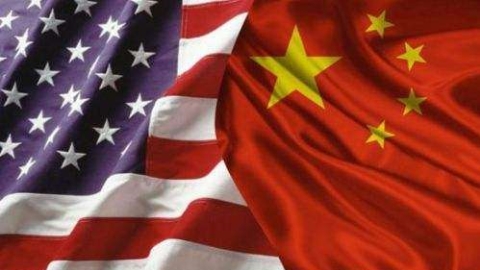U.S. urged to stop hyping up 'China threat' theory
China urged the U.S. on Tuesday to stop hyping up the "China threat "theory, which Foreign Ministry spokesman Wang Wenbin said was exploited by the U.S. to expand its military strength and pursue the advantage of absolute security.
Wang made the remark at a daily news briefing after U.S. officials, including Defense Secretary Lloyd Austin, expressed concerns about China's development of advanced military capabilities and systems, claiming that these would increase tensions in the region and intensify the arms race.
"The U.S. makes false charges to deflect attention," Wang said, adding that Washington "should stop hyping up the 'China threat' and making issues of China".
"China always works to safeguard world peace, contribute to global development, uphold international order and provide public good," he said.
China pursues a self-defensive nuclear strategy, with its nuclear forces always kept at the minimum level required to safeguard national security, he said, adding that China would never engage in a nuclear arms race with any country.
He further said that the sole aim of China's development of necessary military capabilities was to safeguard its legitimate security interests.
"No country will be threatened by China's national defense capability as long as it does not intend to threaten or undermine China's sovereignty, security and territorial integrity," he said.
Being the sole superpower, the U.S. has clung to the Cold War mindset in recent years, comprehensively strengthened its military capabilities and continuously deepened its military alliances, the spokesman said.
"The U.S.' ganging up to shape small military blocs has severely undermined regional peace and security as well as global strategic stability," he added.
Washington not only boasts the largest and advanced nuclear arsenal in the world but also invests trillions of dollars to upgrade its "nuclear triad", Wang said, referring to its nuclear forces on land, in the sea and in the skies.
The U.S. has withdrawn from the Treaty on the Limitation of Anti-Ballistic Missile Systems and the Intermediate-Range Nuclear Forces Treaty while it is continuously pushing for the deployment of a global anti-ballistic system, the spokesman said.
Wang noted that the U.S. was the only country to obstruct the negotiations on the verification protocol of the Biological Weapons Convention for a long time and it also stonewalls the process of negotiations on arms control in outer space.
In addition, the U.S. transferred a nuclear-powered submarine to a non-nuclear weapon state, which aggravated the risks of nuclear proliferation, he added.

